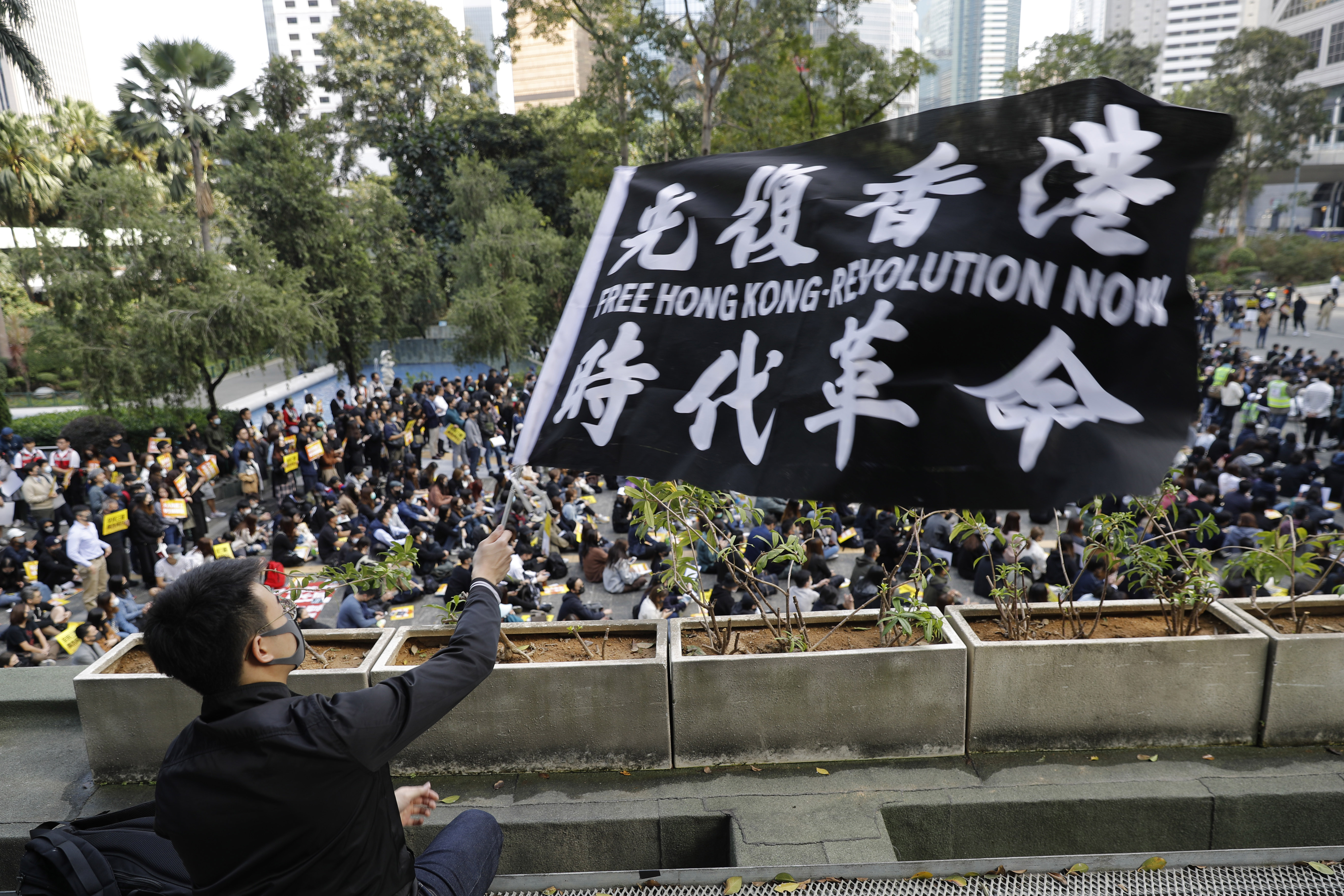U.S. groups get sanctions from China
Military visits to Hong Kong suspended over support bill.
Blade news services
Mon, 02 Dec 2019 20:07:15 GMT
HONG KONG — China said Monday it will suspend U.S. military ship and aircraft visits to Hong Kong and sanction several American pro-democracy and human rights groups in retaliation for the signing into law of legislation supporting anti-government protests in the semiautonomous territory.
While the nature of the sanctions remained unclear, the move followed Chinese warnings that the United States would bear the costs if the Hong Kong Human Rights and Democracy Act was approved.
The steps are “in response to America’s unreasonable behavior,” foreign ministry spokesman Hua Chunying said in Beijing, adding that the legislation seriously interfered in China’s internal affairs.
The law, signed last Wednesday by President Trump, mandates sanctions on Chinese and Hong Kong officials who carry out human rights abuses and requires an annual review of the favorable trade status that Washington grants Hong Kong.
The legislation was backed by U.S. lawmakers who are sympathetic to the protesters and have criticized Hong Kong police for cracking down on the pro-democracy movement.
Police say use of tear gas, rubber bullets, and other force is a necessary response to escalating violence by the protesters, who have blocked major roads and thrown gasoline bombs back at officers in riot gear.
Hong Kong has been living with almost nonstop protests for six months.
The movement’s demands include democratic elections and an investigation into the police response.
More fundamentally, the protesters and others in Hong Kong fear that China is eroding the rights and freedoms they have under a “one country, two systems” framework.
The NED, Human Rights Watch, Freedom House, the National Democratic Institute for International Affairs, and the International Republican Institute are among the institutions that will be sanctioned for their “odious behavior” in Hong Kong, where they have “strongly instigated extremely violent criminal activities,” Ms. Hua told reporters in Beijing.
“They bear great responsibility for the current chaos in Hong Kong,” she said. “These organizations deserve to be sanctioned, and they must pay the price for it.”
China, echoing governments including Venezuela and Egypt, has previously taken aim at the NED, a group established in 1983 and funded by Congress to promote democracy worldwide.
China’s Foreign Ministry in August distributed a lengthy report that named the NED as a U.S. intelligence front and listed its history of funding political groups in Hong Kong going back 20 years.
China has long accused foreign groups and governments of fomenting the demonstrations in Hong Kong, singling out the United States, former colonial overlord Britain, and democratic, self-governing Taiwan, which China claims as its own territory to be annexed by force if necessary.
Among the groups to be subject to the unspecified sanctions, the National Endowment for Democracy receives funding directly from Congress, while others generally draw their running costs from a mixture of private and public grants.
Derek Mitchell, the president of the National Democratic Institute, said in Hong Kong last week that accusations it was colluding with protesters were “patently false.”
While China has in the past suspended U.S. military visits, the sanctions on the various groups could bring conditions for civil society in Hong Kong one step closer to those in mainland China.
Beijing imposes restrictions on nongovernmental organizations, and is particularly concerned about those involved in humanitarian causes, gender equality, the environment, or minority rights.
In Hong Kong, several hundred people who work in advertising started a five-day strike Monday to show support for the anti-government protests.
They said they would not go to work, respond to work emails or take part in conference calls.
Some held up signs with protest slogans at an early afternoon rally to launch the strike in Chater Garden, a public square in the central business district.
Antony Yiu, an entrepreneur in advertising and one of the organizers, said they want other business sectors to join them.
“The government seems to be still ignoring the sound of the majority of the people,” he said.
The advertising industry wants “to take the first step to encourage other businesses to participate in the strike to give more pressure.”
More than 10,000 people marched on Sunday to try to pressure the government to address the demands after pro-democracy candidates won a landslide victory in district council elections one week earlier.
Hong Kong leader Carrie Lam has said she’ll accelerate dialogue but hasn’t offered any concessions since the elections.
The protests are blamed for driving the economy into recession. Tourism, airline, and retail sectors have been hit particularly hard, with retail sales down about 20 percent.

A pro-democracy supporter waves a flag during a rally by the advertising industry in Hong Kong.